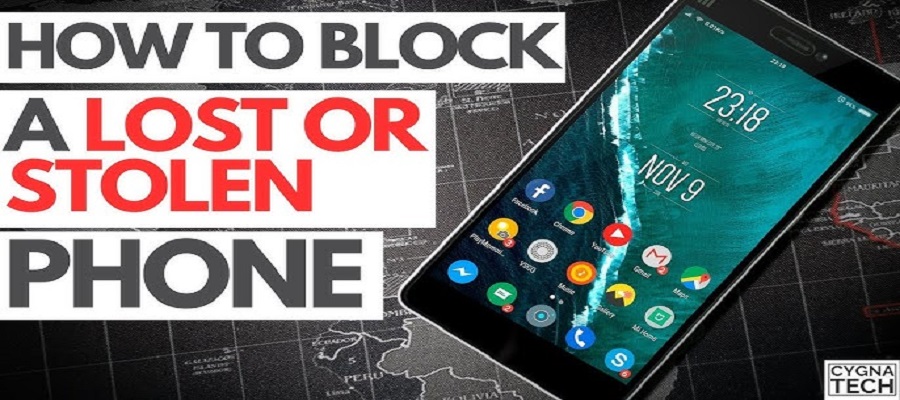Telecom
Intel Launches 6th Gen Intel Core Processor

Intel Corporation has introduced the 6th Generation Intel Core processor family, the company’s best ever processor. The 6th Generation Intel Core processor delivers enhanced performance and new immersive experiences at the lowest power levels ever and also supports the broadest range of device designs – from the ultra-mobile computer stick, to 2 in 1s and huge high-definition All-in-One desktops, to new mobile workstations, effectively marking a turning point in people’s relationship with computers.
Built on the new Skylake microarchitecture on Intel’s leading 14nm manufacturing process technology, 6th Gen Intel Core processors deliver up to two and a half times better performance, triple the battery life, and graphics that are 30 times better than the standard, delivering seamless a gaming and video experiences.
They can also be half the size and weight of older computers, have faster wake up time, and battery life that lasts virtually all day.
According to the Senior Vice President at Intel and General Manager of the Client Computing Group, Kirk Skaugen, “6th Gen Intel Core processors deliver some of the most significant advancements in computing that we have ever seen.
New 6th Gen Intel Core-based systems are more responsive than ever with enhanced performance, battery life and security. And they can enable amazing new PC experiences like logging into your computer with your face and having a personal assistant respond to your voice.
The combination of 6th Gen Intel Core processors, Windows 10 and beautiful new systems from PC manufacturers make this the best time ever to buy a new computer.”
Intel Core M processors, which can offer twice the performance of leading premium tablets, will now include brand levels Intel Core m3, m5 and m7 processors to provide people with more clarity and choice in finding the Intel Core M processor-based device that best meets their specific needs. The Intel Computer Stick lineup expands to include a version powered by the 6th Gen Intel Core M processor.
This new generation of Intel processors also includes several firsts for mobile designs: a mobile “K” SKU that is unlocked to enable overclocking with even more user control, a new quad-core Intel Core i5 processor that offers up to 60 percent improved mobile multitasking, and the Intel Xeon E3 processor family now powering mobile workstations.
The 6th Gen Intel Core processors deliver significant improvements in graphics performance to offer stunning visuals for gaming as well as compelling 4K content creation and media playback. New Intel Speed Shift technology improves the responsiveness of mobile systems so people can, for example, apply a photo filter up to 45 percent faster.
In addition, the 6th Gen Intel Core and Intel Xeon platforms will offer a variety of new features and experiences. More devices will feature Thunderbolt 3 for USB Type-C, enabling one compact port that does it all.
A user-facing or world-facing Intel RealSense Camera will be available on a range of new 6th Gen Intel Core processor-based 2 in 1s, notebooks and All-in-One desktop systems, offering new depth-sensing capabilities and immersive experiences that allow people to do things like take and share lifelike 3-D selfies, scan objects and print in 3-D, and easily remove and change their background during a video chat.
The 6th Gen Intel Core platform will also advance Intel’s “no wires” initiative to deliver the best experience for wireless display available today with Intel WiDi or Pro WiDi.
This technology allows people to easily share from their computer to a TV, monitor or projector without the mess of wires and dongles.
The 6th Gen Intel Core processor family helps optimize Windows 10 features such as Cortana and Windows Hello for more seamless and natural interaction with technology. Devices with the Intel RealSense Camera paired with Windows Hello let people securely log in using facial recognition.
True Key technology by Intel Security is also available on many 6th Gen Intel Core processor-based systems to deliver a secure experience for logging into devices and websites without the need to remember each site’s password.
In the coming months, Intel plans to deliver more than 48 processors in the 6th Gen Intel Core processor family, featuring Intel Iris and Iris Pro graphics, as well as Intel Xeon E3-1500M processor family for mobile workstations and 6th Gen Intel vPro processors for business and enterprises. A variety of devices across a wide range of form factors will be available now and over the coming months from manufacturers around the world.
In addition, Intel is offering more than 25 products for the Internet of Things (IoT) with up to 7-year long-life supply and Error Correcting Code (ECC) at multiple TDP levels. Retail, medical, industrial, and digital surveillance and security industries will all benefit from the new 6th Gen Intel Core processor improvements and includes IoT designs from the edge to the cloud.
Telecom
Anambra ICT Agency Celebrates GOVTECH Awards, Applauds Soludo’s Digital Vision

Chukwuemeka Fred Agbata, CFA, md/ceo of the Anambra State ICT Agency, has extolled Governor Charles Chukwuma Soludo, CFR, for his unwavering commitment to technology adoption in Anambra State, a vision that has positioned the state as a shining example of digital governance in Nigeria.

This recognition follows Anambra’s outstanding performance at the Nigeria GOVTECH Gala & Awards 2025, where the state clinched two prestigious honours at the Presidential Banquet Hall, Abuja.
The Anambra State Ministry of Budget and Economic Planning emerged as Best State MDA in Technology-Driven Governance, while the Anambra State Bureau of Public Procurement received the Excellence in Digital Public Procurement Award.
The Commissioner for Budget and Economic Planning, Chiamaka Nnake, and the DG of BPP, Okechukwu Ezeobi, also received Trailblazer Awards for exemplary leadership.
Speaking on the win, CFA commended his colleagues for working closely with the Agency to deepen technology adoption, and reaffirmed the ICT Agency’s commitment to powering the digital infrastructure that supports efficient and transparent government operations in line with Governor Soludo’s “Everything Technology, Technology Everywhere” mantra.
“These awards underscore what is possible when agencies work together with a shared vision,” CFA said. “The ICT Agency is proud to support and enable the digital systems that make such milestones possible.”
He further pledged that the Agency would sustain the momentum by expanding digital integration across government processes, ensuring that Anambra remains at the forefront of e-governance innovation in Nigeria and beyond.
Telecom
IHS Closes Deal to Sell Rwanda Operations

IHS Holding Limited (IHS Towers), an independent tower company, has completed the sale of 100% of Rwanda operations to Paradigm Tower Ventures.

First announced in May, the deal is worth $274.5 million, representing a transaction multiple of 8.3x adjusted EBITDA after leases, and includes about 1,465 sites.
According to IHS Towers, the sale of the company’s Rwanda operations is part of its strategic initiatives targeted at shareholder value-creation options following over ten years of commercial success in the East African country.
The acquisition IHS Rwanda will mark the first investment by Paradigm’s new Sub-Saharan African tower platform, whose focus is on the growth of new build shared wireless infrastructure across the region.
Paradigm is backed by a consortium of equity and debt finance providers, including Convergence Partners and Rand Merchant Bank, a division of FirstRand Bank Limited, who acted as mandated lead arranger, sole funder and financial advisor.
Stephen Harris, co-founder and chairman of Paradigm previously commented: “Rwanda represents an exciting market with high demand for shared wireless infrastructure. The Paradigm team is very much looking forward to building a strong customer focused business, providing high quality and secure infrastructure to mobile network operators.”
Telecom
NCC Launches DMS to Block Fake, Stolen Phones from Mobile Networks

Nigerian Communications Commission (NCC) has announced the implementation of a Device Management System (DMS) designed to block fake, cloned, and stolen phones from accessing Nigeria’s mobile networks.

The system, which has been in development for nearly a decade, will track mobile devices through their International Mobile Equipment Identity (IMEI) numbers across the country’s telecommunications networks.
The initiative follows Nigeria’s recent nationwide migration to the NINAuth digital ID verification platform, demonstrating the country’s commitment to modernizing its telecommunications infrastructure.
Operating through a Public-Private Partnership (PPP) framework, the DMS marks a significant step in regulating Nigeria’s telecommunications device market.
The initiative addresses the prevalent issue of counterfeit and unregistered phones in the country, where estimates indicate that up to 40 percent of mobile devices and tech gadgets are fake or substandard.
The challenge mirrors similar issues faced by other African nations, such as Uganda, which recently launched its own “Simu Klear” system to address counterfeit devices.
According to the NCC, the implementation will proceed gradually to minimize disruption to legitimate users. “Substandard and fake devices can be prevented from connecting to the networks due to the harmful impact these devices have on the quality of services and online safety of the users,” the Commission stated.
The IMEI-based tracking system builds on successful implementations in other regions, where similar technology has been used to recover lost and stolen devices.
The widespread presence of counterfeit devices in Nigeria has been attributed to various economic factors, including inflation, unemployment, and reduced purchasing power, which have led consumers to seek cheaper alternatives despite associated safety and security risks.
The risks include potential exposure to malware and security vulnerabilities, similar to recent incidents where banking trojans have targeted Android users through counterfeit applications.
Dr. Aminu Maida, executive vice chairman, NCC, has made the DMS initiative a key part of his broader regulatory agenda, which emphasizes protecting telecom assets and improving network quality.
The system supports the Commission’s focus on transparency, accountability, and infrastructure protection in Nigeria’s telecommunications sector, which serves over 200 million people.
The effort complements other recent security initiatives in the country, including PalmPay’s multi-layered security strategy to combat digital payment fraud.
The DMS implementation features several key components, including IMEI-based device identification and blocking capabilities, integration with existing network infrastructure, and coordination between public and private sector stakeholders to ensure effective enforcement.
The comprehensive approach reflects the growing importance of mobile device security in an era where authentication methods are rapidly evolving to counter sophisticated cyber threats.

 General News3 days ago
General News3 days agoIHS Nigeria Champions a Prosperous Nigeria through Digital Inclusion at NES #31

 E-Financial3 days ago
E-Financial3 days agoPolaris Bank Wraps Up 2025 Customer Service Week with Renewed Commitment to Customer Satisfaction

 News3 days ago
News3 days agoNITDA DG says Corps Members Catalysts for Technological Innovation

 Telecom3 days ago
Telecom3 days agoMTN Nigeria to Connect 8m Homes with Fibre Network by 2028

 E-Financial3 days ago
E-Financial3 days agoCBN Orders Banks to Refund Failed ATM Transactions within 24 Hours

 E-Financial2 days ago
E-Financial2 days agoWeek Ahead: Nigeria CPI, US-China trade woes, big bank earnings

 Telecom2 days ago
Telecom2 days agoTD Africa and HP Strengthen Partnership, Eye Expansion Across Africa

 E-Financial3 days ago
E-Financial3 days agoTelcos Are Becoming Banks for The Next 2Bn Customers















